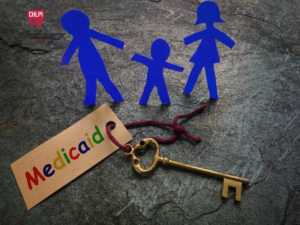Originally published by Waste360 on December 21, 2017. Written by Arlene Karidis.
The new year could be monumental for H.R. 3444—The Food Recovery Act, its supporters hope, if efforts to tie some provisions to the 2018 discussions on the farm bill are successful. Omnibus legislation which covers much of U.S. food and agriculture policy comes up for passage in Congress every five years. Some legislators are attempting to add food recovery efforts into that larger bill.
The largest pieces of H.R. 3444 call for research into new technologies and approaches for food waste prevention, date labeling and a government food recovery liaison to coordinate efforts across federal agencies. The act also pushes for support for composting under U.S. Department of Agriculture (USDA) programs.
Rep. Chellie Pingree, D-Maine, who introduced the act with Sen. Richard Blumenthal, D-Conn., started looking closer at issues around food waste after hearing a presentation on the topic.
“We talked to a lot of people in Maine who’d written some of what we read, asking how people are working on it,” Pingree says. “We consulted with the National Resource Defense Council, the Harvard Food Law and Policy Clinic and others. Then we went to industry contacts like Campbell Soup, Nestle and Walmart. We went to associations like the Grocery Manufacturers Association and to ReFED for data to assess the best way to try and fix the problem…. We have a bill with several sections and we would be happy if the whole bill could pass. But we don’t always have that opportunity. So it’s broken down to be able to attack sections.”
The research provision seeks funding for additional studies around food waste and its sources and to expand research into food preservation technologies. The food date labeling provision would standardize and differentiate safety dates from quality dates.
It is the provision for a government food recovery liaison that especially interests Nicole Civita, professor of agriculture and food law at the University of Arkansas in Fayetteville. She consulted with Pingree’s office on the original bill.
“Having someone coordinate food waste reduction efforts across federal agencies is important because so many agencies are implicated in both the problem and solutions,” Civita says.
The Environmental Protection Agency focuses on environmental impact and initiatives. The USDA focuses on food waste and food loss. The Food and Drug Administration has its role in labeling.
“These agencies are already tied in and have overlapping authority to address food waste,” Civita says. “The USDA liaison would coordinate and institutionalize the focus on food waste and recovery so that it does not fade away as administrations change.”
H.R. 3444 supporters want to require companies that contract with the federal government to donate surplus food to Also, they push for food service providers who submit bids for government jobs to be expected to include in their proposal how they will deal with surplus waste food.
“I am suggesting it should be built into these companies’ responsibilities to not shift the burden and cost of food waste to taxpayers,” says Pingree.
She believes opportunities could come from food waste management policy, and cites two processes as an example.
“My feeling is there’s money to be made in compost and anaerobic digestion, and if you make your policy that this is where waste goes, entrepreneurs will want to be in business to do this,” Pingree says. “Or communities could say, we want composting at the landfill. Ideally, they could apply for federal or state funding.”
There are still unresolved issues. For instance, there is a need to better understand what’s driving waste-generating decisions in order to determine relevance of the date label.
The proposed act calls for a quality date on any food, which is “best if used by.” And it calls for safety dates, indicated by “used by,” on ready to eat, perishable products.
“The assumption is people toss based on dates, but research shows they look at the date in stores and won’t buy it if the dates are quickly approaching,” Civita says. “So dates are contributing to waste, but the question is how and where are they contributing? This is where the bill provision addressing additional research seems especially pertinent.”
But having uniform date labels is a critical component, especially considering that people travel and since food is sold across state lines.
“I want to know dates have the same meaning everywhere to decrease confusion,” says Civita.
The most recent attempt to move the bill at the end of 2015 resulted in getting pieces attached, including a permanent, enhanced tax deduction for food donation.


